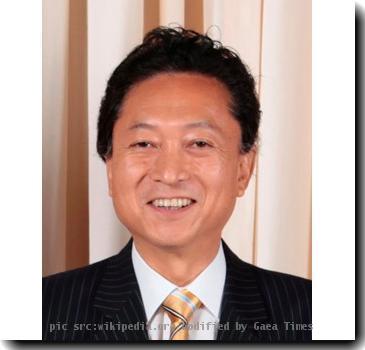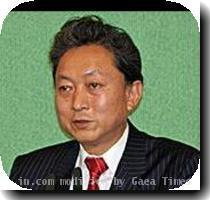South Korean president calls for cautious response to ship sinking blamed on North Korea
By Kelly Olsen, APFriday, May 21, 2010
SKorea calls for cautious response to ship sinking
SEOUL, South Korea — South Korea’s president said Friday his country was caught in a “perfect military ambush” when a North Korean torpedo sank a naval warship, but called for a cautious response to the disaster that left 46 sailors dead.
President Lee Myung-bak made the comments at an emergency national security meeting convened one day after an official report concluded that North Korea was responsible for the deadly sinking of the South Korean patrol ship Cheonan. North Korea has denied involvement and vowed “all-out war” in case of any moves to retaliate over the sinking.
An international team of civilian and military investigators declared Thursday that a North Korean submarine fired a homing torpedo on March 26, ripping the 1,200-ton ship in two. Fifty-eight sailors were rescued, but 46 died — South Korea’s worst military disaster since the Korean War.
“We were caught in a perfect military ambush by North Korea while our people were resting in the late hours,” Lee said at the start of the meeting, according to a statement by his office.
Lee called the sinking a “military provocation” and said it violated the U.N. Charter as well as the truce that ended the fighting in the 1950-53 Korean War.
“Because this is a serious and important issue, I believe there must not be a single mistake in all of our responsive measures, and that we must be highly prudent,” he said.
Discussion at the meeting focused on international cooperation, military readiness, inter-Korean relations and preparedness against unconventional threats from North Korea, including cyberterrorism, spokeswoman Kim Eun-hye said in the statement.
Lee had vowed Thursday to take “resolute countermeasures” against the North over the sinking. He was expected to give an address to the nation on Monday or Tuesday.
Military retaliation, however, is seen as too dangerous and not a serious option given the vulnerability of South Korea’s capital, Seoul, and its 10 million some residents to North Korean artillery located just across the border.
Separately Friday, North Korea spoke of war for a second straight day, while U.S. Secretary of State Hillary Rodham Clinton was on her way to Asia, with tensions on the Korean peninsula expected to dominate her agenda.
Pyongyang, which has denied any role in the sinking, said “a war may break out right now” and that it “will regard the present situation as the phase of a war and decisively handle all matters arising in inter-Korean relations to cope with it.”
It also vowed to react to any South Korean retaliation by halting cooperation with Seoul and abrogating a North-South nonaggression pact.
The remarks were included in a statement by the Committee for the Peaceful Reunification of Korea, which is in charge of inter-Korean affairs, and carried by the Korean Central News Agency.
On Thursday, North Korean navy spokesman Col. Pak In Ho told broadcaster APTN in Pyongyang that any retaliation over the sinking would mean “all-out war.”
Investigators in Seoul said torpedo parts found near the explosion site closely resemble a smaller, experimental torpedo that floated into South Korean waters in 2003 and match the schematics of a North Korean-made torpedo Pyongyang has tried to sell abroad.
However, Pak said any such evidence was fabricated.
“If there were indications that the sinking was our doing, then the whole thing is an act — theatrics by the South Koreans to implicate us,” he told APTN.
North Korea has asked to send its own team to investigate the site.
South Korean Defense Minister Kim Tae-young called the request “irrational and incomprehensible,” and told reporters a response would be sent to Pyongyang on Friday. He said Seoul had asked the U.N. Command’s Military Armistice Commission to handle any investigation.
Lee has not announced what steps South Korea will pursue against the North. Options include taking the issue to the U.N. Security Council, where North Korea has been previously sanctioned over nuclear and missile tests.
Japanese Prime Minister Yukio Hatoyama told reporters Friday that he would discuss with Clinton what kind of message to send to North Korea about the ship sinking incident.
“We will discuss what Japan and the United States, as well as Japan, South Korea and the United States, can do, including bringing the issue to the U.N. Security Council,” he said.
Clinton heads to China and South Korea after her stop in Tokyo.
South Korea, Japan and the U.S. issued sharp criticism over the sinking but China, Pyongyang’s key ally, has refrained from doing so. Beijing called on all parties to “stay calm and exercise restraint.”
“I think that we need to be strategic about it in the sense that you can’t just go back and do something as retaliation because that just sort of feeds the cycle and so that’s not going to be useful,” said Carl Baker, an expert on Korean military relations at the Pacific Forum CSIS think tank in Honolulu. “And I think all indications in the South Korean military is that they recognize that.”
Associated Press writers Jean H. Lee and Sangwon Yoon in Seoul, Shino Yuasa in Tokyo, and Anne Flaherty and Matthew Lee in Washington contributed to this report.
Tags: Accidents, Asia, East Asia, Japan, Lee Myung-bak, North America, North Korea, Pyongyang, Seoul, South Korea, Tokyo, Transportation, United States, Yukio Hatoyama

